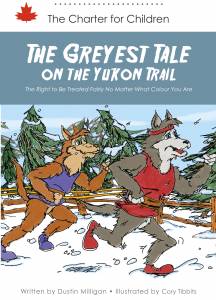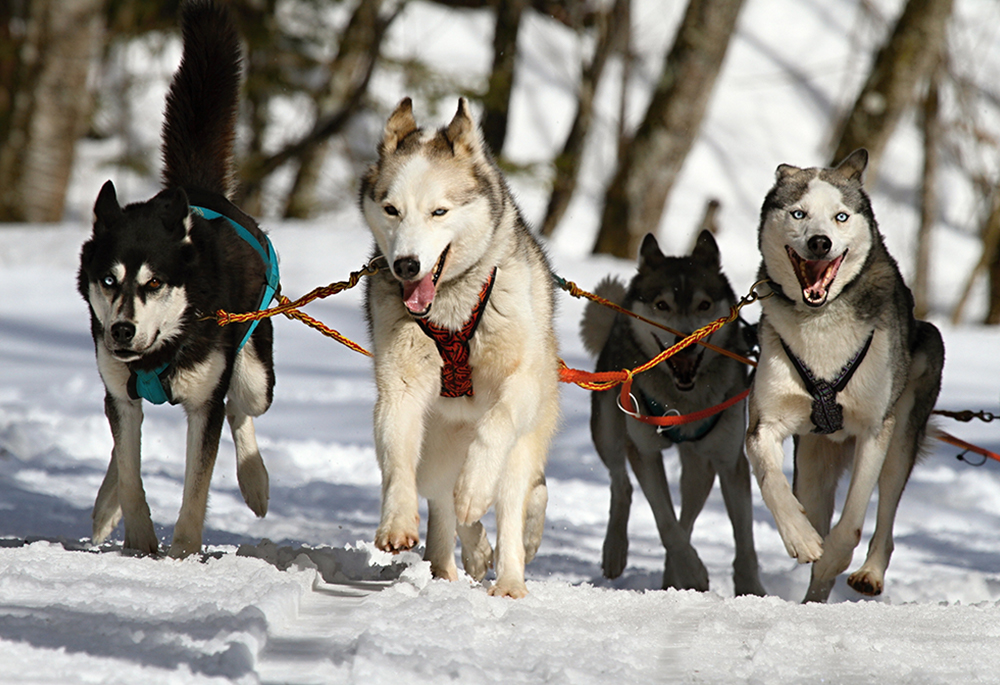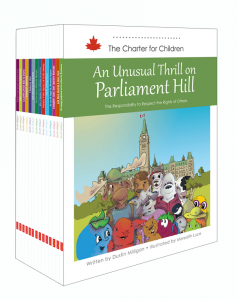 Look outside your window. Is it sunny? Raining? If it’s snowing, you can be certain Sam HusGee is out training for the dogsled competition out in Yukon, Canada. But this husky’s journey has been a difficult one. Never mind the weather, challenging training, and stiff competition—Sam can mush through all of that. The real issue comes down to the colour of his fur. Yes, you guessed it: Sam is a victim of institutionalized racism.
Look outside your window. Is it sunny? Raining? If it’s snowing, you can be certain Sam HusGee is out training for the dogsled competition out in Yukon, Canada. But this husky’s journey has been a difficult one. Never mind the weather, challenging training, and stiff competition—Sam can mush through all of that. The real issue comes down to the colour of his fur. Yes, you guessed it: Sam is a victim of institutionalized racism.
Sam knows he is the most qualified to be sled leader, but the Ministry of Dogsled Affairs is convinced that only a brown husky has the necessary skills to bring the team to victory. Grey dogs like Sam, she says, are far too slow—everyone knows that. Sam and his friends must rally to bring justice to a decidedly unjust system; after all, all huskies deserve the chance to lead.
But what does this children’s story have to do with actual people?
Of course, the prejudices and discrimination based on fur colour in this canine society are far more than plot devices for a simple children’s book. They serve to highlight the real-life struggles that people of colour face daily, resulting from a long and painful history of colonization, slavery, segregation, and hatred. And although society is evolving towards a future where equality is for everybody, there are still many obstacles we must, as a global community, overcome in order to liberate ourselves from past biases and systemic racism.
The first step towards a brighter future is to teach kids to be open-minded, respect each others’ differences, stand up for people in need, and listen to those who are finally finding their voices. That’s why Dustin Milligan’s Charter for Children series targets kids aged 7-11. If kids can understand why it’s unfair to choose a brown dog over a grey one, they can surely grasp that choosing a Caucasian man over a more qualified black man for a job due to skin tone is racist. These children are our future. Why wouldn’t we give them the tools they need to build a better future for everyone?
So, teach your kids about racism. Sexism. Homophobia. Show them how they can help marginalized groups feel safer and respected. Our history may not all be pleasant; in fact, many pieces of it are brutal, cruel, infuriating, and devastating. But by hiding all the ugly parts of our past, we won’t recognize the signs that we are heading towards making the same mistakes. Kids deserve to know what happens when the word “human” doesn’t apply to all people.
We know it’s hard to broach topics like slavery and cultural genocide. But by starting smaller, like with a story of racial bias amongst dogs, you’re building a foundation of values that line up with the Canadian Charter of Rights and Freedoms and aim for true equality—a unified yet diverse nation. That’s the future you’re giving your kids when you flip open a copy of the Charter for Children. Multilingual, multi-ethnic, open-minded: that’s our Canada.


